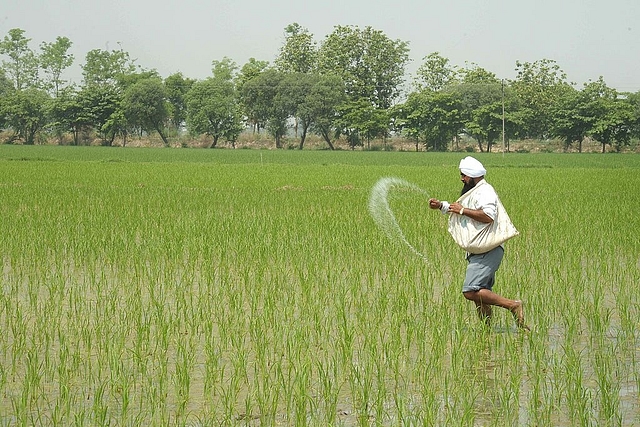
No Relief: If Bad Weather Didn’t Hit Farmers In 2016, Modi Govt’s Agri Policy Did
Bad weather did not hit the farmers, but they got hit anyways.
Agricultural research companies will remember the year for inclement policy more than for “normal” monsoons after two years of deficient rainfall. The Agriculture Ministry played a role which cannot be considered neutral. So-called nationalist companies were pitted against multinationals. The seed industry split into two, with research-oriented ones forming a breakaway group and the stump representing those engaged mainly in trading.
On the eve of the Prime Minister’s visit to the US, the ministry provoked an outcry by setting aside intellectual property protection granted to genetically-engineered (GE) plant traits like insect resistance. It used the Essential Commodities Act to do so. Agri-business leaders said while India was a large market, the notification had made it unattractive for them. It would deter them from bringing innovations to India or investing in them within the country. As the consequences sunk in, the notification was converted into a draft for public consultations. But it shook confidence. What is to prevent a repeat in another garb but with the same intent? One company withdrew its application for approval of third generation Bt cottonseed.
In another unhelpful step, the ministry brought genetically-modified cottonseed, which is sown on more than 90 per cent of the country’s cotton area, under price control nationally. Prices of the seed are regulated in many states. The ministry reduced the retail price to Rs 800 a pack. But it passed on most of the gain to seed sellers not farmers.
Such an adverse policy environment will not help the country when it has to cope with climate change and provide for a growing population. The agriculture minister believes in magical solutions like yogic farming. There was also an inordinate emphasis on traditional and organic farming.
The Economic Survey, which precedes the budget, said India must invest in more-from-less agriculture. It recommended drip irrigation. With judicious use, a larger crop area could be watered and the leaching of fertiliser prevented. It called for a shift from Green Revolution cereal crops, which are resource-intensive, and suggested that India promote socially-beneficial pulses and oilseeds, which are short of demand, use less water and enrich the soil with atmospheric nitrogen.
A subsequent committee on pulses headed by the Chief Economic Adviser recommended that these commodities be procured at higher support prices and the procurement be monitored by a group of ministers to ensure actual procurement took place.
Surely, Indian farmers in rain-fed areas growing pulses and oilseeds are entitled to the same assurance as the Prime Minister gave to farmers in East Africa? If India can contract to buy two million tonnes of pulses annually by 2020-21 from those countries, should Indian farmers be denied that comfort?
Though the Agriculture Ministry played swadeshi seed companies against multinationals, it turned coy on GE mustard developed by a team of Delhi University (DU) scientists. Of course, the agriculture ministry does not give regulatory approval for mass cultivation of GE crops; it is the Environment Ministry’s prerogative. But it could have amplified the voices of mustard farmers, who are yearning for efficient mustard hybridisation technology as yields have been low and stagnant for many years.
Though the environment minister is said to be ambivalent about GE technology, the ministry spoke tough against those opposed to it in its affidavit to the Supreme Court. There is talk that GE mustard will be approved by end of this year. The previous environment minister Prakash Javadekar said he was committed to approving DU’s GE mustard hybrid but did not make good on that promise before he was moved to the Human Resources and Development Ministry.
If GE mustard is approved, other crops like chickpea (chana) and pigeonpea (tur), genetically-engineered to resist borers, should move into farmers’ fields. These are also public sector innovations. Both the Economic Survey and NITI Aayog have said India must shed its phobia of the technology.
Agricultural productivity, output and incomes will be greatly helped if the government makes a law to enable land leasing, as recommended by the Tajamul Haque Committee set up by NITI Aayog. This will help overcome the adverse consequences of land fragmentation.
The Prime Minister’s highly-subsidised crop insurance scheme launched at the beginning of the year was well received. It has covered more crop area and farmers than its previous versions. Sum insured was also much higher. But actuarial premiums have risen instead of falling with scale. While early-bird states are said to have got low quotes from insurers, the laggards got ripped by them. Even settlement of claims was not satisfactory. Greater attention must be devoted to implementation issues.
Trade policy continued to disfavour farmers. The agriculture ministry’s over-assessment of wheat output resulted in import duties being raised and then abolished, just when wheat sowing was on. Bad weather did not hit the farmers this year, but they got hit anyways.